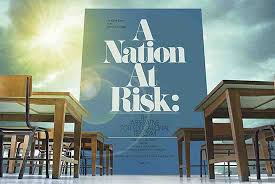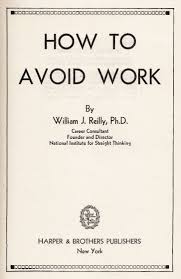A wealth of current research into happiness has yielded a consistent and surprisingly small set of factors. Three, in fact, beyond the needs of food and shelter: Relationships, Freedom, and Meaningful Work. Strong, positive relationships create a sense of belonging, a feeling of value and importance in the world. We are social creatures, dependent upon the company of others for survival. At the same time, we are autonomous, and need independence. We don’t wish to be forced into all decisions and crave, both for ourselves and those closest, the freedom to choose. And finally, research shows that people are most happy when they are good at the things they spend most of their time doing. Mastery and Meaning go hand in hand. People who are good at what they do tend to find meaning in it, and people who find meaning in what they do tend to develop the skills that create mastery.
But these are ADULT conditions. We apply them to the workforce, the family unit, the social contract. We do not apply these concepts to school and children. If anything, much of what we do in school is the opposite of belonging, autonomy, and mastery. It’s almost as if school is not merely unconcerned with the happiness of students, school is designed to eliminate their happiness altogether.
Consider Relationships. The classroom structure is actually primarily designed to break students’ most meaningful social connections. We sit them in desks facing one direction. We often (and necessarily) assign seating away from the distraction of friends. We take away their phones, of course, and attempt to limit in all sorts of often futile ways the social access of their computers. Many schools and teachers even go to great lengths to discourage the only human relationship left, that with the teacher.
Autonomy, of course, is completely absent in school. Kids can’t even go to the bathroom without asking permission. They can’t choose what to wear, when to eat, what to study or when to study it. Where to go, when to go there. Who to be with or what to do with them. How to walk or how to talk. What to care about and what to ignore. The lack of freedom students have is so thorough, actually, that I suspect we simply avoid thinking about it altogether. Whatever shades one might attempt to paint the picture of school and autonomy, there’s little arguing that nearly every detail concerns the reduction of it.
The three components of happiness are somewhat exclusive of each other, even oppositional. Relationships decrease autonomy, for example. Strong, meaningful social commitments, as any married person or parent can tell you, come with expectations of behavior, limits on one’s personal desires and actions. Both Belonging and Autonomy can limit the acquisition of skill, especially if those skills are necessary but not chosen. Again, as any married person can tell you, having a spouse or child in the room can seriously disrupt work. There’s a balance that needs to be maintained, and sometimes a choice to be made. School, obviously, is about Mastery and work.
But while meaningful work is the primary focus of school, it’s actually here where we stumble most profoundly. Yes, education is almost exclusively dedicated to the acquisition – and mastery – of skills. It is for this reason that we work so hard to break kids from their social circle and force them into behavior they wouldn’t otherwise choose. But since we aren’t really concerned with a student’s happiness (if we were, we wouldn’t be so aggressive in eliminating 2 of the 3 essentials), we ignore both Meaning and Mastery when instructing.
Meaning is significantly powered by choice, by Autonomy, so there is an immediate reduction of the individual aspect of meaningful work when students cannot choose what to study, when to study it, or how to study it. But the lack of Meaning in the work of school extends much further than choice. Often, it’s simply not considered at all. The acquisition of skills is complicated, uncertain, and expensive if one is forced to answer the fundamental question: why? The vague answers students so often get – almost all of them variations of ‘You’ll need this later’ – rarely address the actual question that most adults ask and answer satisfactorily about their jobs: Why? What is the value or purpose? Because most of the time, for that student in that place at that time, there is no answer. They are studying the subject more or less ‘Because.’ Because that’s what the curriculum mandates. Because that’s what’s on the test. Because that’s what the Standard is. Because that’s what the system says they must learn. Because that’s what the structure of their schedule demands. Because this is the hour in which they study that thing. There is no ‘Meaning’ or ‘Purpose’ to the subject; there is only system and structure and process. There is not even the reward of money, merely grades.
Sometimes there’s a kind of peripheral motivation to schoolwork that leans towards meaning – working on ‘this’ builds a parallel skill which will help later in the mastery of meaningful work on some undefined ‘that’. ‘This’ math problem helps build math fluency, which will be useful when one is an engineer or building a business. Writing ‘this’ essay builds writing skill, which will prove necessary when one actually has worthy ideas. But such motivations have absolutely nothing to do with meaning, and everything to do with a skill divorced from any kind of purpose; students are told simply to trust and mindlessly do. Yet meaningful work is anything but mindless.
We might like to think, perhaps, that if ‘Meaning’ isn’t clear to their work, at least students are focused on Mastery. But again, no. School is not structured for Mastery. School is structured for Adequate.
The basic motivational aspect of grades guarantees that schools are not interested in mastery. Consider: what is the first thing one thinks if they hear everyone in a class got A’s? Amazing teacher and totally invested kids? Of course not. The class was too easy. Most schools, in fact, attempt to maintain average grades that hover around the ‘Adequate’. Mastery is for the few, not the many. And while there is a great deal of teeth gnashing and lamentation about grade inflation, nobody ever makes similar points about grades being inaccurately low. If ALL – or even most – students are achieving some form of mastery over the material, the cry goes out to make it harder.
Standardized testing has little to do with Mastery or Meaning, of course, unless it means one masters a meaningful exam, but this is just one element of the problem of assessment. The traditional classroom measurement device – the test – is specifically designed to separate the few who have mastered the material from the many who have merely acquired the basics. And rarely does any kind of exam really address the fundamental aspect of Meaning. Many tests only matter in the moment, to the material of the moment.
None of the three components of happiness stand alone to the creation of a satisfying life. By themselves, Community, Independence, and Meaningful Work do not create happiness. If anything, too much of one and not enough of the others is often the root of an unhappy life. Conversely, none of these happiness factors is mutually exclusive and they often feed each other. Community creates a sense of purpose and belonging, gives value and meaning to one’s work. Mastery feeds one’s Autonomy. Choice makes Meaning meaningful. But in deliberately removing these components from student’s lives, we do not make learning any easier or powerful.
Kids who come to class and act social, who push against the lack of autonomy in various childish ways, or who don’t care for the work are usually punished. We treat their actions punitively, as if they have been bad. Yet the truth is, all they are trying to do is be happy. That’s not exactly a crime; in fact, isn’t happiness kind of the whole point of education in the first place?

